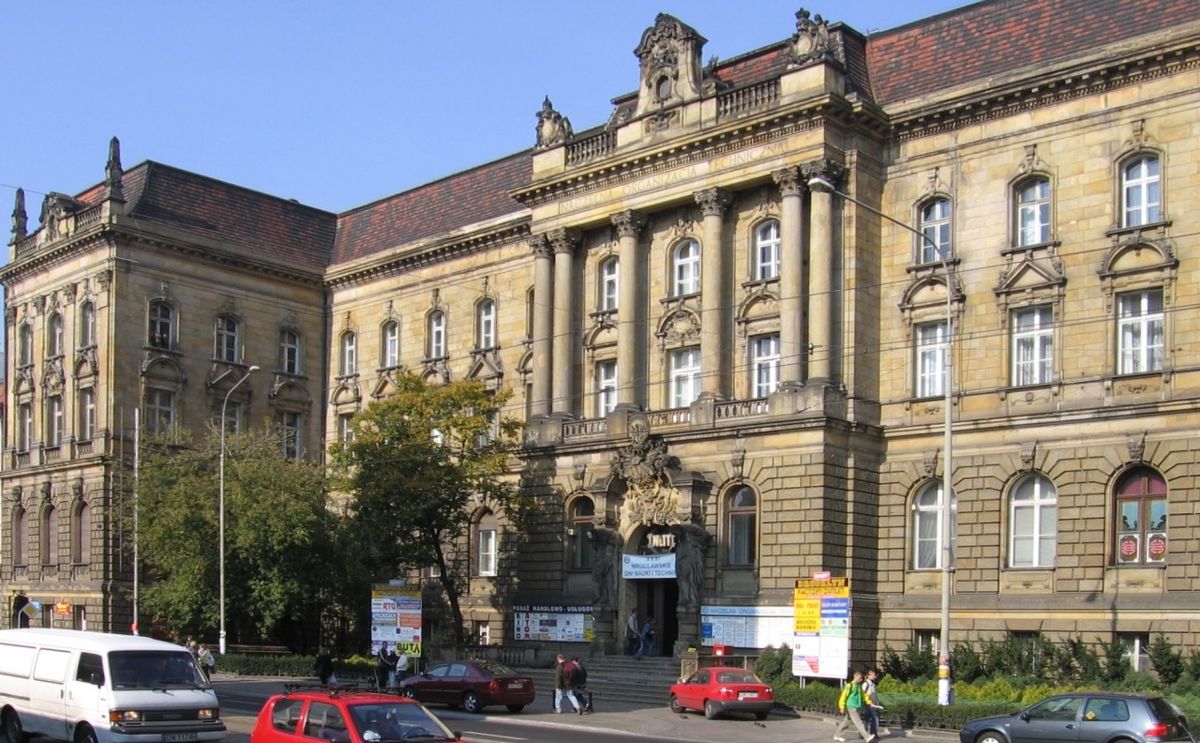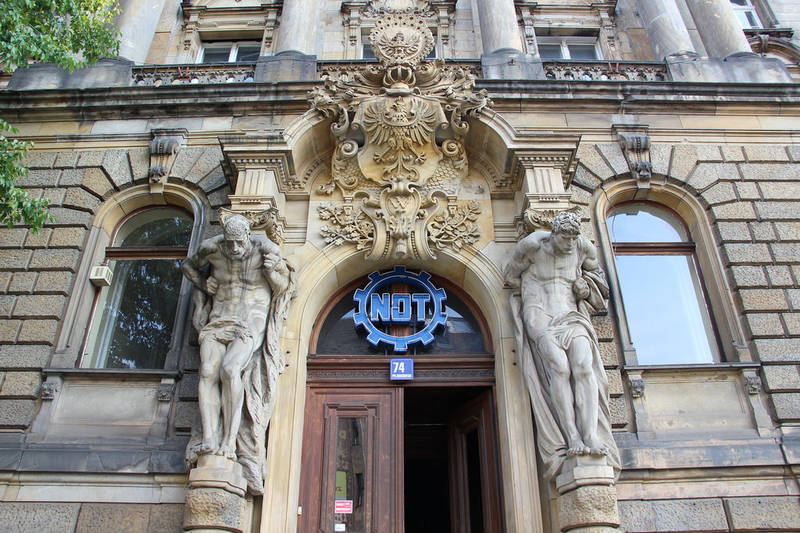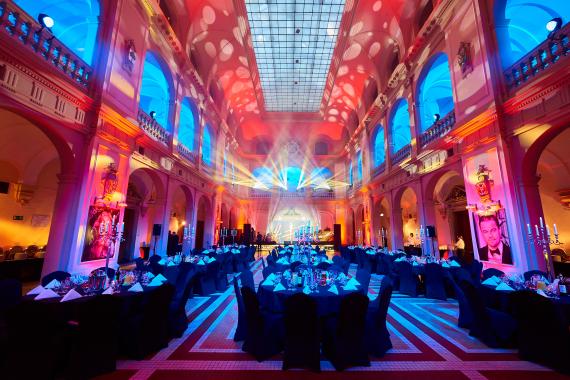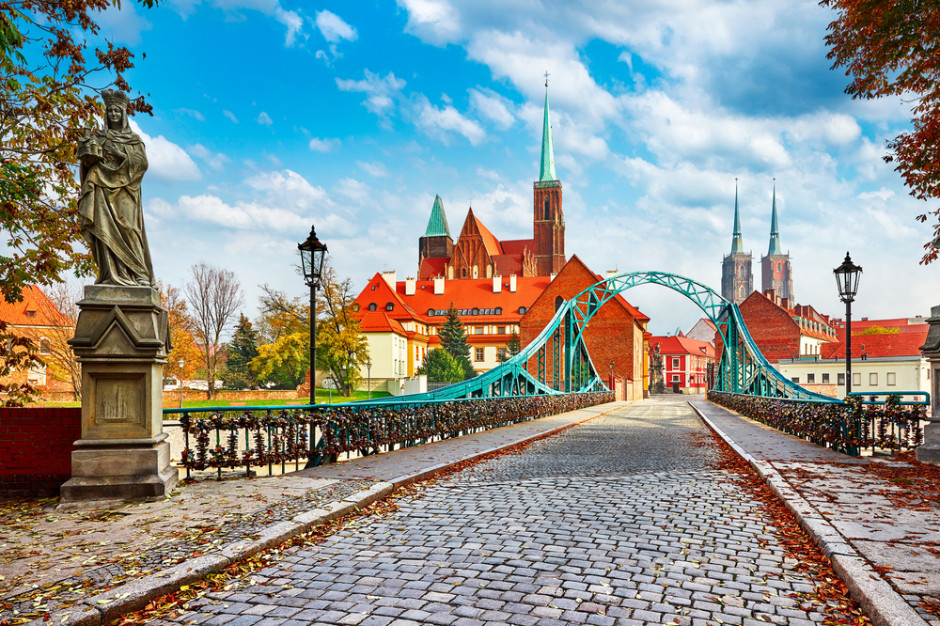
Wrocław (Polish: [ˈvrɔt͡swaf]; German: Breslau [ˈbʁɛslaʊ]; Czech: Vratislav; Latin: Vratislavia) is a city in western Poland and the largest city in the historical region of Silesia. It lies on the banks of the River Oder in the Silesian Lowlands of Central Europe, roughly 350 kilometres (220 mi) from the Baltic Sea to the north and 40 kilometres (25 mi) from the Sudeten Mountains to the south. The population of Wrocław in 2018 was 639,258, making it the fourth-largest city in Poland and the main city of Wrocław agglomeration. Source of the above photograph.
Wrocław is the historical capital of Silesia and Lower Silesia. Today, it is the capital of the Lower Silesian Voivodeship. The history of the city dates back over a thousand years, and its extensive heritage combines almost all religions and cultures of Europe. At various times, it has been part of the Kingdom of Poland, Kingdom of Bohemia, Kingdom of Hungary, Habsburg Monarchy, Prussia and Germany. Wrocław became part of Poland again in 1945, as a result of the border changes after the Second World War, which included a nearly complete exchange of population.
Wrocław is a university city with a student population of over 130,000, making it one of the most youthful cities in the country. Since the beginning of the 20th century, the University of Wrocław, previously Breslau University, produced 9 Nobel Prize laureates and is renowned for its high quality of teaching.
Wrocław is classified as a Gamma-global city by GaWC. It was placed among the top 100 cities in the world for the quality of life by the consulting company Mercer.
The city hosted the Eucharistic Congress in 1997 and the Euro 2012 football championships. In 2016, the city was a European Capital of Culture and the World Book Capital. Also in this year, Wrocław hosted the Theatre Olympics, World Bridge Games and the European Film Awards. In 2017, the city was the host of the IFLA Annual Conference and the World Games.
For more details on Wroclaw and available tours, visit https://visitwroclaw.eu/en
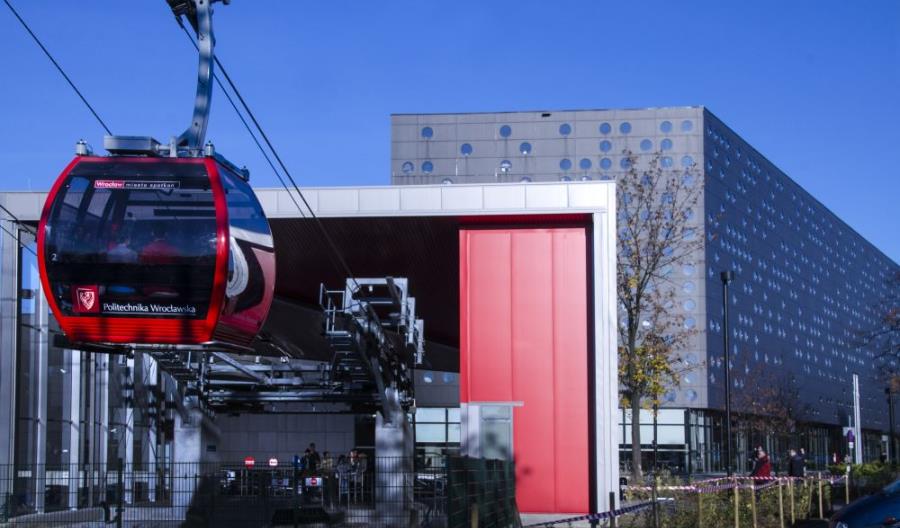
Wroclaw University of Science and Technology is the leading scientific and educational centre in Poland. Its position among technical universities in both Europe and the rest of the world is increasing every year. Development of the University is confirmed by research potential, didactics at the highest level, innovation and also cooperation with industry. The University educates specialists who are valued and sought after in the labour market.
Wroclaw University of Science and Technology is an inheritor of the tangible property of the German University Königliche Technische Hochschule Breslau, and also the intellectual and scientific heritage of Lviv Polytechnic.
The University, as Wroclaw University of Technology, has been operating since 1945. Its creators and organizers were scientists from Lviv and Warsaw. From the very beginning it was an important centre of technical education. Today it is one of the biggest and best technical universities in the country with 34,000 students being educated by 2000 academic teachers in 16 faculties.
The rating of the University is confirmed by the results that the University achieves in annual rankings, such as the “Perspektywy”, “Wprost” or “U-Multirank” ranking of Higher Education Institutions, in which it continues to occupy the top position.
Wroclaw Technology Park
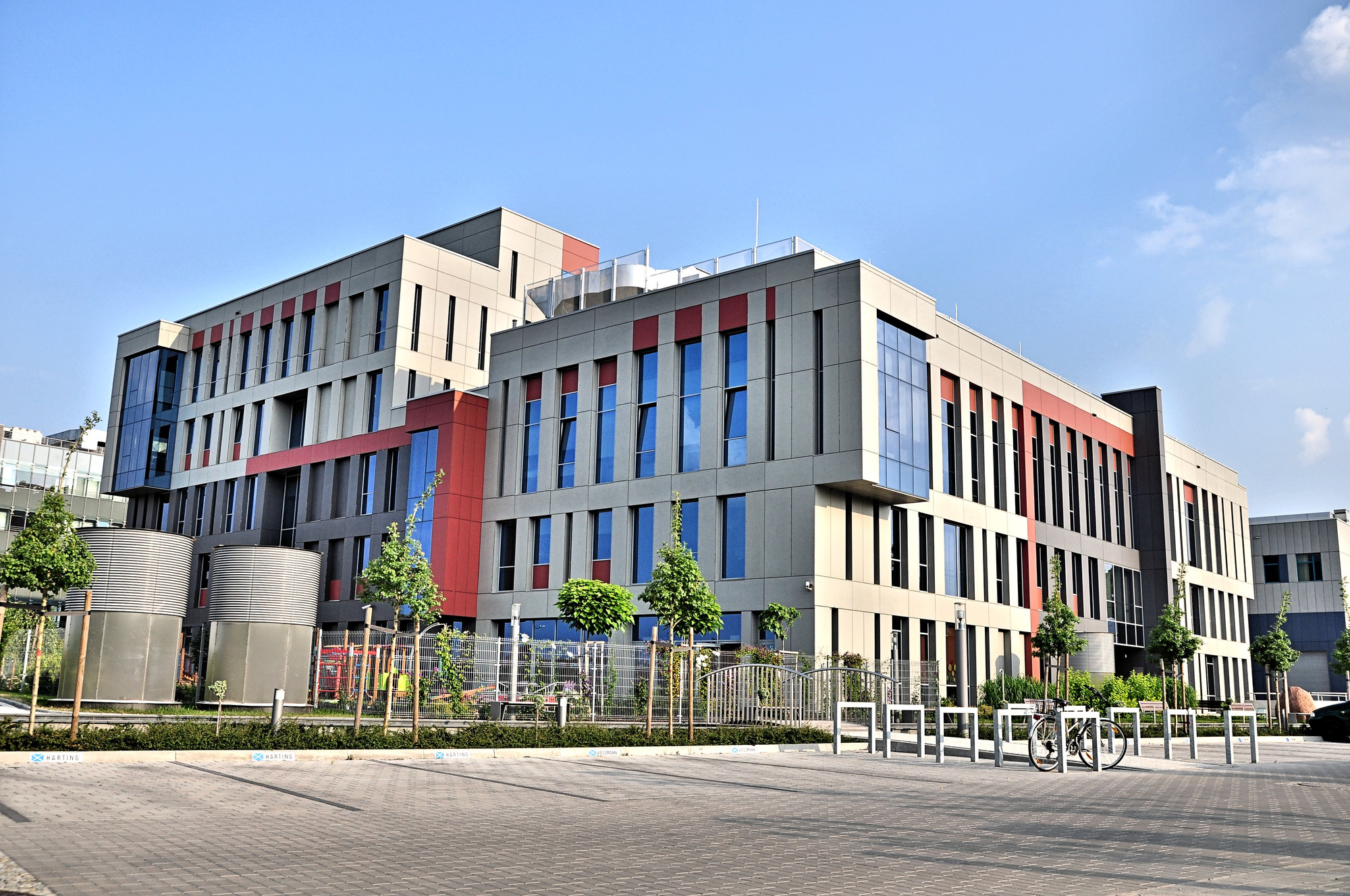
The history of our Park reaches back to 1996. It is then that the representatives of scientific, business and financial institutions, as well as local and national government agencies met at a conference dedicated to the topic of technological parks. It was initiated by Wrocław City Council, Lower Silesian Chamber of Commerce and the Foundation of Development of Wrocław University of Science and Technology.
WPT is a perfect place of operations for companies, entrepreneurs and scientists from the research and development sector, as well as research and development departments. Both startups, enterprises from the SME sector as well as large international companies will find their place here.
The Wrocław Technology Park implements a number of projects that contribute to the development of cooperation between the science and business sectors. We support companies and projects that focus on research and development, innovation and modern technology.
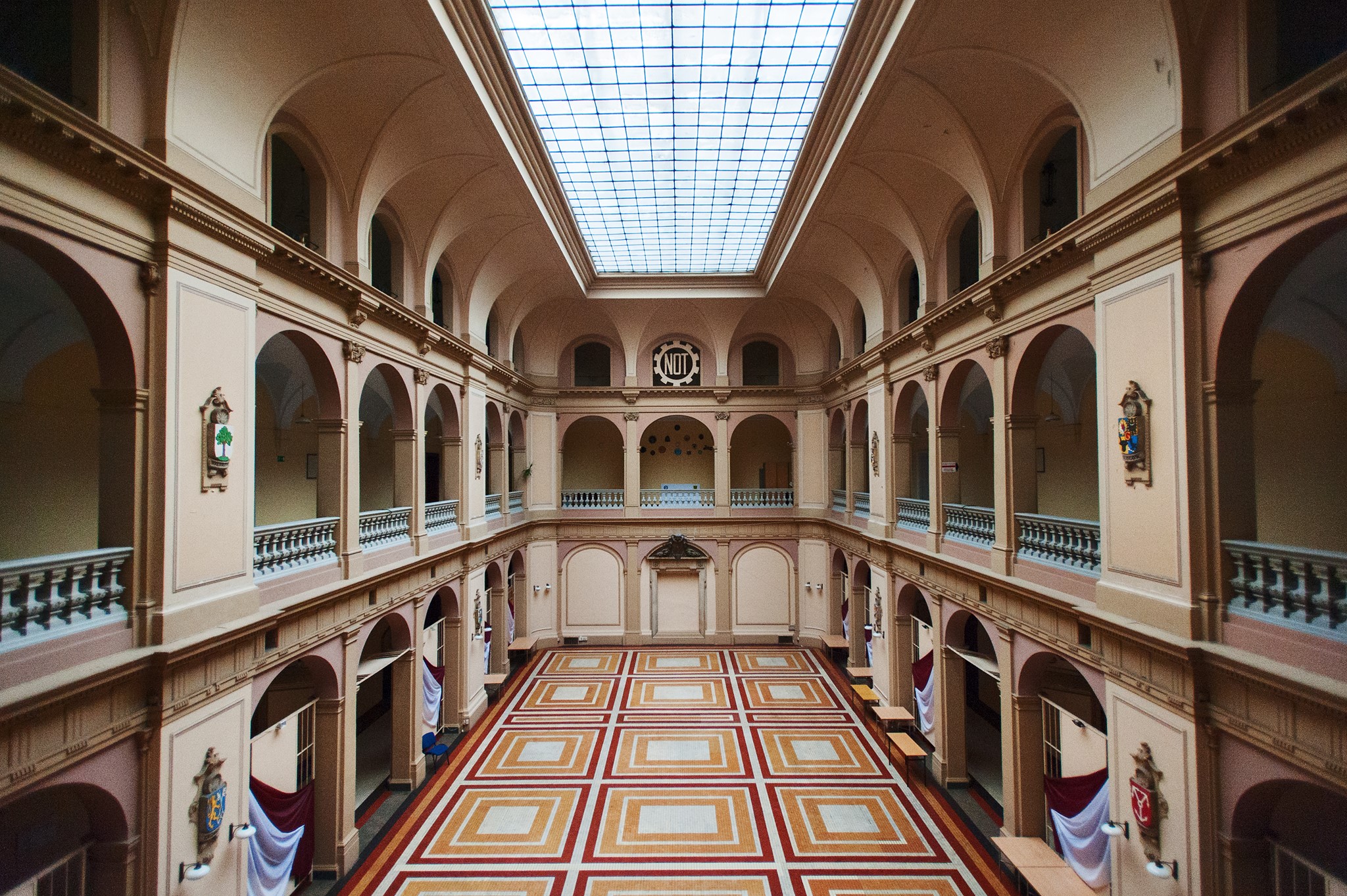
Chief Technical Organization (NOT)
Federation of 39 Scientific and Technical Associations (FSNT-NOT) is a voluntary association of Scientific and Technical Associations. He works for the science, technology and economy of the Republic of Poland, supporting the creative effort of Polish engineers and technicians. FSNT-NOT and its associations actively participate in international engineering communities and organizations, representing the Polish technical community. They develop cooperation with Polish-American scientific and technical associations, integrating the technical community in the country and abroad.
The Polish Federation of Engineering Associations FSNT–NOT (Polish: Naczelna Organizacja Techniczna NOT), translated interchangeably as: the Polish Chief, Main or Central Technical Organization; known also as the FSNT Federation in Poland: Federacja Stowarzyszeń Naukowo–Technicznych FSNT, is the biggest Polish association representing professional engineers and technicians with 110,000 members and 49 regional branches (Engineering Associations) across the country. Its headquarters have been in Warsaw since 1905.
